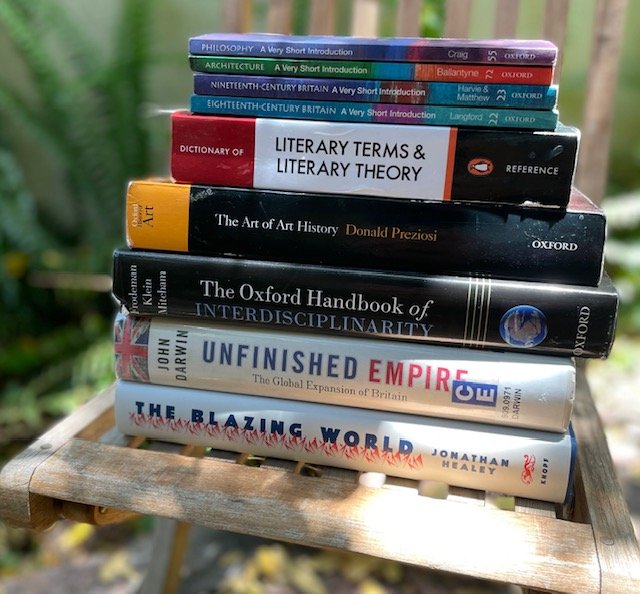I don’t often write parenting posts. The reason is threefold:
1.
We aren’t done parenting yet. While we have four adult children and one about to be so, we are also still raising a high schooler, a junior higher, and an intellectually disabled 10-year-old. If we’ve learned anything, it’s that we don’t call the game at half time. The story isn’t over.
2.
Our best parenting moments have been entirely led by the Holy Spirit. I’m not kidding when I say the most helpful, loving, and life-transforming things to come out of my mouth have been uttered after I’ve cried out to God and told him I have no idea how to handle the present situation. Some of those are doozies, like when the loudest, most contentious yelling shakedown occurred above my head on the second floor. . . between two sisters. Even the older brothers had never had such an altercation, and there was no cupboard of experience into which I might peer and draw acquired wisdom.
I could tell you how to parent and what to do, but the better guide is the Holy Spirit in your life. I’d want you to take my ideas with that in mind.
3.
Our family dynamics, marriage, home culture, and children are all different than yours. I can tell you where we have failed miserably and where we have had huge successes, but really only in relationship to the people in our home.
If you can keep those three things in mind, then keep reading!
Prior to leaving legalism, we were a rules-based family. There was a lot of fun and monkeying around and kids splashing in the pool and people everywhere, but the bottom line was the bottom line: “Shape up or ship out.”
Then one sweltering June morning I tiptoed into the big master bedroom walk-in closet to check on the baby and discovered that my tiny beautiful boy had slipped into a life-altering coma. It’s a story I tell often, because it was the beginning of transformation. How could it not be?
As God began to gently nudge us out of our rules-based, religion-heavy, good behavior-driven stupor and toward a faith centered solely on what Christ had accomplished on our behalf, our relationships began to change, too. Our parenting changed.
There are nuances that have been the result of that change, nuances that are still refining themselves within each relationship and interpersonal interaction we have with each individual child. That could fill a book. But this is a lowly blog post and I want it to pack a punch in fewer illustrations and absolutely no chapters, so here we go:
Showing children grace does not cancel out showing them how to be decent human beings.
I want to like my kids. I want you to like my kids. Therefore, we still teach them to treat each other with kindness, be grateful for everything that’s been given to them, be others-centered and unselfish in their care of people, and to wipe the pee off the toilet seat.
We still discipline when there’s defiance. We say what we mean and mean what we say. We still take away technology when it begins to steal a child’s ability to focus on anything but a screen, assign appropriate chores, get irritated when dishes are dumped in the sink or snuck to a bedroom, and curtail privileges like hanging out with friends when attitudes are tossed our way or schoolwork is ignored.
But grace. Grace allows us the space to also communicate that doing everything perfectly—schoolwork, relationships, chores, obedience—does not make God love them any more than he already does. Grace is a gift, given and bestowed because he loves them so. Grace allows me, the sinful mother, to say, “Oh man. Look at how I blew up at you. I am so sorry. Can you forgive me? This is why I need Jesus. This is why you need Jesus.”
It’s a subtle shift in how we view sin, our children, and their savior, but it packs a critical punch. It allows a giant space for the gospel to swoop in and communicate that he isn’t angry, vengeful, or wrathful with the redeemed. He loves and showers grace over the hearts of his beloved people, including our children. We get a lot of do-overs because of Jesus.
The Bible is still a great guide, whether or not we believe it’s for our good.
It’s funny. The more I talk about grace, the more I’m met with the response, “But what about swinging the pendulum too far? I mean, God has rules.” Folks, we are obsessed with the rules.
Obsessed.
So much so that I spent one whole chapter of Leaving Legalism addressing this very topic. Rules. Pendulums. The law/grace equation.
You’re right. There are rules. But let us never, never, never forget that those rules (commands, principles, imperatives) always, without exception, follow God’s outpouring of love and his communication of who he is and who we are because of who he is.
I’ve just finished reading through the first four books of the Bible this year, and I have been struck repeatedly by the fact that God, without fail, tells his people who he is and then tells them who they are because of who he is before he hands over the rules etched into giant stones. Their identity—who they are—is established before they get the list of how he wants them to move forward.
If God has found it necessary and consequential to remind us who he is and who we are because of it, then we must do the same. Do you want something to do? Do that. Remind yourself, over and over and over, of who God is and who you are because of it. Redeemed. Justified. Whole.
Out of the knowledge of who we are flows the desire to do what he tells us to do. If we reverse the order, we are precluding God’s Word. We are telling him we can keep his law all by ourselves. We can’t. You cannot.
We teach our kids first who they are in light of who God is, and then we tell them why our loving God gives us so much wisdom and some really helpful guidelines. We might not agree with displays of the 10 Commandments in public spaces, but I bet there isn’t one who disagrees with “Don’t murder”, “Don’t lie”, or “Don’t steal your neighbor’s stuff”. God, in his infinite wisdom, tells us the rules because he knows what is best for humanity.
Imagine that.
Grace is a glorious, God-shaped gift. It lives eternally. It isn’t a popular parenting paradigm.
How you decide to dress your kids, feed your kids, talk to your kids, or steer your kids is entirely up to you. Fads abound. Parenting built on a foundation of the understanding of our salvation by faith alone through grace alone in Christ alone isn’t one of them.
You do you.
As you do you, remind yourself and your children that we have been given much grace, and in light of it, we want to follow Jesus.. We don’t get points for following. God doesn’t love us more because we spent lots of time focused on him today. We aren’t super saved or more cherished because of anything we do. We are all of those things because of what Jesus did.
Can you imagine growing up in a home like that?

















